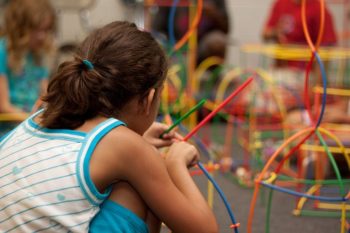Overcoming Reading Barriers
Every January, I set a goal for the number of books I will read over the course of the next 12 months. I try to compete with my friend from college, Nick. His stats increase each year and I typically find myself hopelessly behind within a matter of a few months. While I enjoy the competition and I do enjoy the relaxing gift of reading a book, this wasn’t always the case. I distinctly remember only wanting to read Garfield or Calvin and Hobbes cartoon books when I was a kid. My parents never waivered in their efforts to find some books I would enjoy. One summer in late elementary school, my mom brought home Drummer Boy at Bull Run by Gilbert Morris. Something about the historical context and the relatable teen drama and issues had me enthralled. I proceeded to read the entire series. From that point forward, I am always looking for the next book that will captivate me the same way I was captivated that summer. [Read more…]

Dr. Kevin Myers is an Executive Administrator for YPI Charter Schools and the Principal at Bert Corona Charter School. He has served the Los Angeles community as a teacher, administrator, and grant director for over 20 years. He has a passion for developing teachers and educational leaders to engage in the challenging work of bringing equity to our schools and our communities. Dr. Myers has developed an expertise in supporting underserved communities, building effective and cohesive school leadership teams, and engaging parents to uplift their communities through engagement at their children’s schools. He wrote his dissertation on teacher self-efficacy and job satisfaction and is a strong advocate for supporting and working with teachers to build a strong and successful school community. In addition to his work at YPI Charter Schools, Dr. Myers is also a faculty member at Cal State Fresno and works with student teacher candidates to earn their credentials as they work through the CalState TEACH program.
 The 10 Best Differentiated Instruction Teaching Strategies for K-12 Classrooms
The 10 Best Differentiated Instruction Teaching Strategies for K-12 Classrooms
 How Parents Help Each Child Succeed in School
How Parents Help Each Child Succeed in School Special Education Parents Provide School Support and Leadership
Special Education Parents Provide School Support and Leadership